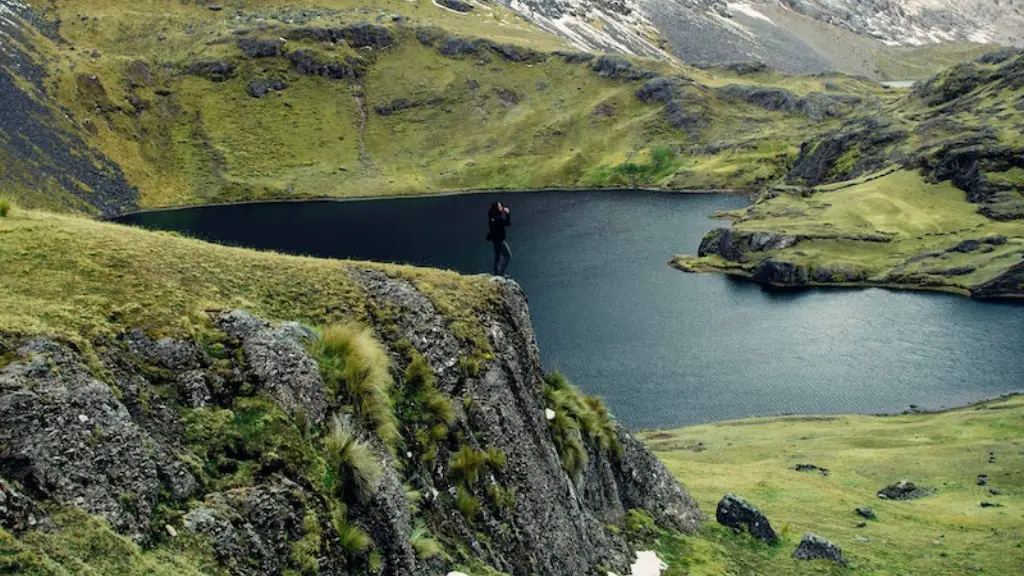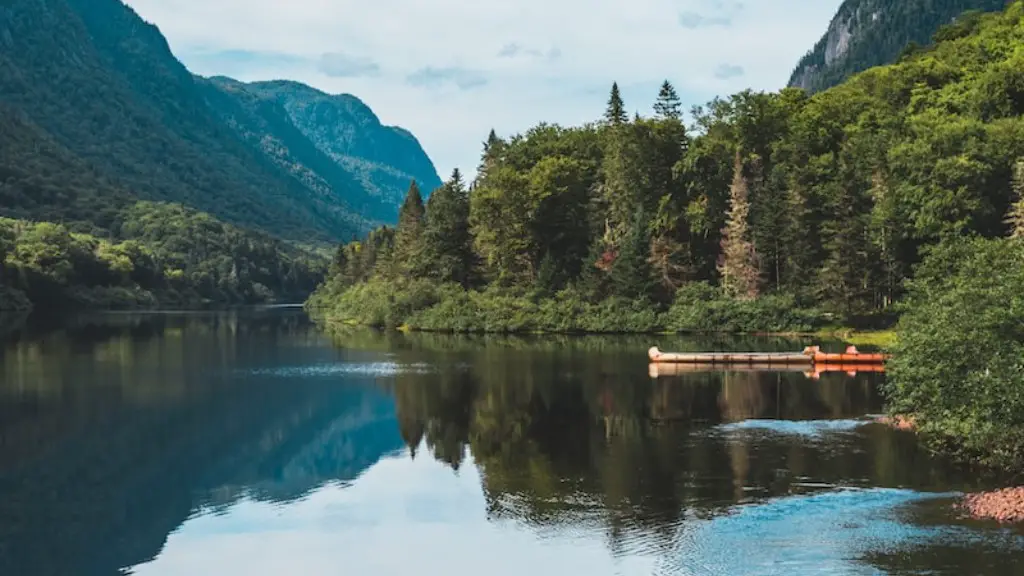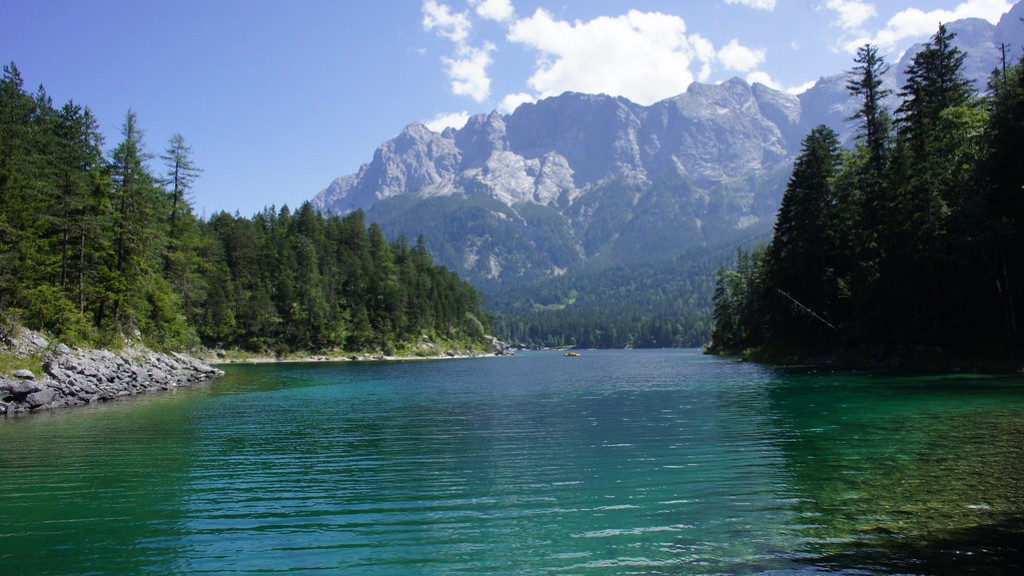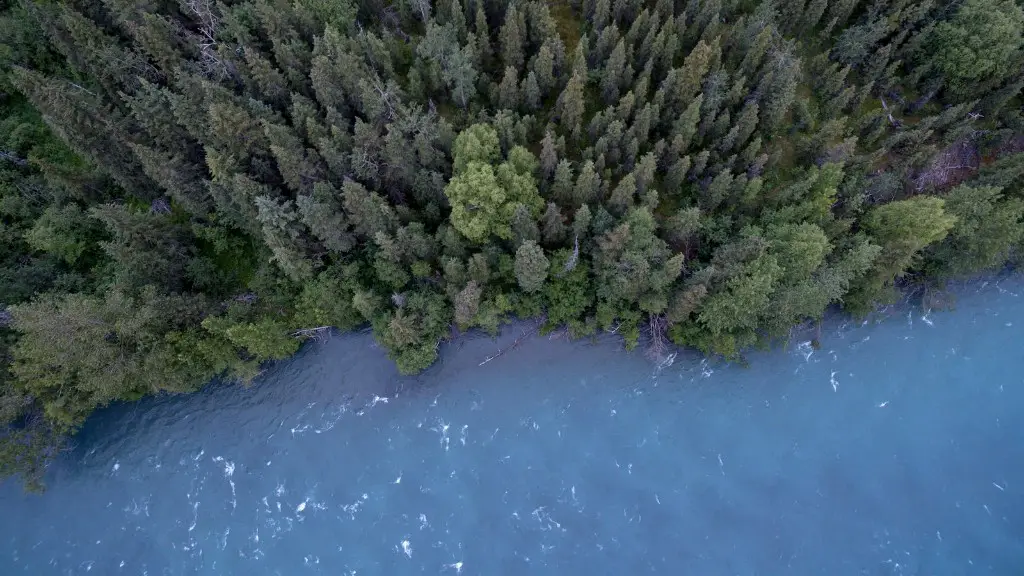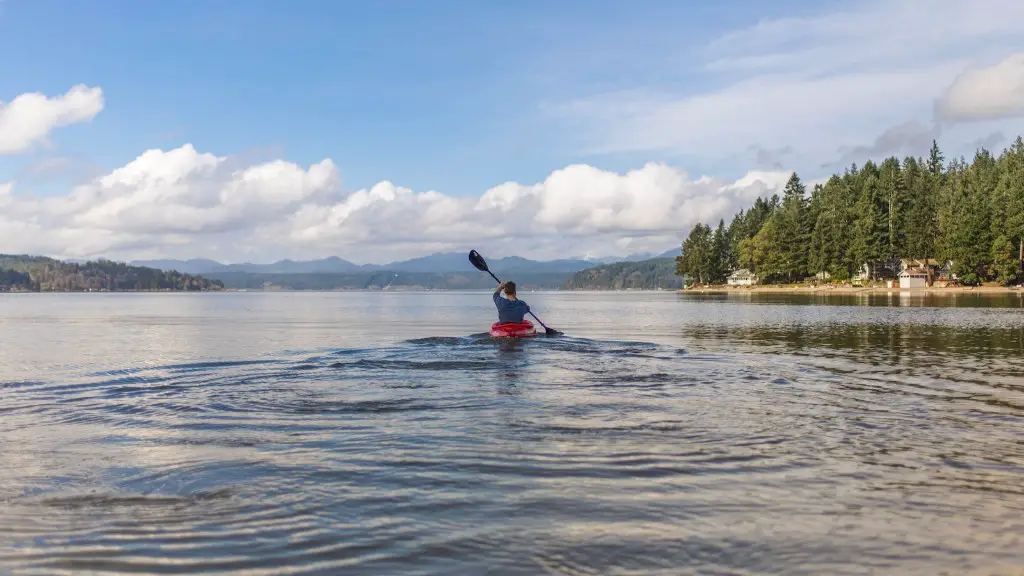Lake Victoria is Africa’s largest lake and the second-largest freshwater lake in the world, located in the Great Rift Valley between Tanzania, Kenya and Uganda. It is fed by several rivers, including the Kagera, which is the longest river in the lake’s catchment area. Not only does this lake provide substantial water resources, but it is also used for transport, fishing, hydropower, and recreation, among other uses.
Lake Victoria is a major source of water, food, and energy for many of the surrounding countries. It provides up to one third of the total energy generated in the countries bordering the lake. This is mainly in the form of hydropower, which has allowed countries such as Uganda and Tanzania to use the lake’s abundant water supplies to generate electricity.
The lake is also a major source of food. Fishing is a major economic activity in Lake Victoria, with the majority of the fish being Nile perch. The Nile perch is an invasive species that was introduced to the lake in the 1950s, and has become one of the most important commercial fisheries in Africa.
Lake Victoria is also used for transport. Several large ferries ferry passengers and goods across the lake, as well as other boats and canoes. This has allowed for increased connectivity and trade between the countries bordering the lake.
In recent years, the lake has been facing many environmental issues. The introduction of the Nile perch has caused overfishing and led to a decrease in the numbers of some native species. Pollution, especially from untreated sewage and agricultural runoff, is also a major concern, as it can lead to the contamination of the lake and the disruption of the food chain.
Experts have warned that if the pollution and overfishing are not addressed soon, then the lake may suffer irreparable damage. In order to protect the lake, the three countries bordering it have formed the Nile Basin Initiative, which aims to promote sustainable development along the Nile and its basin, including the preservation of Lake Victoria’s valuable ecosystem.
The lake is also used for recreation, with the shores of the lake being a popular spot for swimming, boating, and sunbathing. The lake is also home to several national parks and game reserves, allowing visitors to observe the native wildlife.
Lake Victoria plays an important role in the lives of millions of people. It is a source of food, water, energy, and transportation that is essential to the survival and livelihoods of those living in the surrounding countries. It is essential that the lake is protected, as it plays an integral role in the region’s economy and environment.
Effects of Pollution
Pollution is one of the biggest issues facing Lake Victoria. As mentioned, untreated sewage and agricultural runoff from surrounding countries can pollute the lake and cause harm to the environment. Pollution can damage the ecosystem of the lake, which includes the plants and animals living in it, affecting the health of not just the fish, but also the people depending on them. The pollutants can also reduce the oxygen levels in the water, inhibiting the growth of aquatic life, and can also lead to the spread of diseases such as malaria, cholera, and schistosomiasis.
Pollution can also have an impact on the water quality of Lake Victoria. Poor quality water can be unsafe to drink, and can even cause skin irritation and other health issues. In some cases, the water quality can be so poor that it can be a risk to even go in the water, as it can provide an environment in which harmful bacteria and viruses thrive.
In order to protect the lake from further damage, it is essential that pollution is addressed. This means that countries in the region need to work together to implement proper regulations and monitoring systems, as well as education and awareness initiatives. It is also important that individuals and companies in the region take responsibility for the protection of the lake and take steps to reduce pollution.
Overfishing
As previously mentioned, Lake Victoria is home to the Nile perch, which has become one of the most important commercial fisheries in Africa. This species has been overexploited in the past, leading to a severe decline in its numbers. Overfishing not only affects the ecosystem of the lake, but it can also impact the people depending on the fish as a source of food.
In order to protect Lake Victoria and its resources, it is essential that the countries bordering the lake take measures to regulate the fishing industry. This can include creating a management plan, as well as implementing regulations and restrictions on fishing practices. It is also essential that fishermen in the region are aware of their responsibilities, and take steps to ensure that the number of fish in the lake remains healthy.
Additionally, more sustainable fishing practices need to be implemented. This could include introducing measures such as bigger mesh sizes, which can prevent juvenile fish from being caught, or banning the use of gillnets and longlines, which can cause damage to the fish population.
Recreational Uses of Lake Victoria
Lake Victoria is a popular destination for recreational activities, such as swimming, boating, and fishing. A number of national parks and reserves located around the lake also provide visitors with the opportunity to observe the native wildlife in their natural habitats. This includes a variety of birds, mammals, and reptiles, as well as several unique species of plants.
Tourists are also attracted to the lake due to its stunning landscape. With its crystal clear waters and abundant wildlife, it is easy to see why it is a popular destination for tourists. The lake is also home to several islands, providing visitors with the opportunity to explore the lake’s many bays and coves. There are also a number of resorts located around the lake, providing visitors with comfortable and luxurious accommodation while they explore the lake.
Lake Victoria is also a popular spot for water sports such as kayaking, sailing, and windsurfing. The lake offers a range of different terrains to explore, from wide sandy beaches to rocky islands, as well as several off-shore reefs. It is also possible to rent boats and canoes, allowing visitors to explore the lake from the comfort of their own vessel.
Not only is Lake Victoria a popular destination for tourists, but it is also an important resource that provides the people living within its catchment area with food, water, and energy. It is essential that the lake is properly managed in order to ensure its long-term sustainability, so that future generations can continue to benefit from its many uses.
Tourism and Economic Development
The countries bordering Lake Victoria have recognized its importance as a destination for both domestic and international tourists. This has led to increased investment in the region and the development of a number of resorts, restaurants, and leisure facilities. The increased tourism has also helped to create much-needed jobs in the region, as well as provide an opportunity for local businesses to expand.
The increased investment in the region has benefited not just the people living around the lake, but also the environment. For example, the establishment of national parks and reserves has allowed for a better protection of wildlife and habitats that were previously threatened. Improved infrastructure has also helped to reduce the levels of pollution in the lake, as well as provide access to clean drinking water.
Lake Victoria is a key resource for the people living in the region and provides them with access to food, water, electricity, and transport. It is essential that the countries bordering the lake work together to protect it, so that it can continue to be a valuable resource for future generations.
Conclusion
Lake Victoria is a vast freshwater lake located in the heart of the Great Rift Valley, providing the countries surrounding it with resources such as water, food, and energy. It is a key resource for the people living in the region, however, in recent years it has been facing a number of environmental issues, such as pollution and overfishing. It is essential that the countries bordering the lake take measures to safeguard it, so that its resources can continue to be used for future generations.

